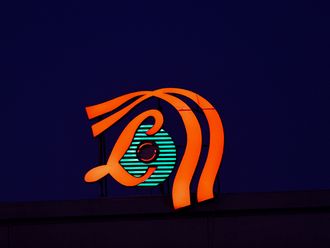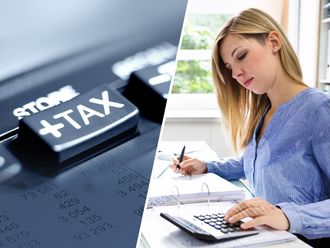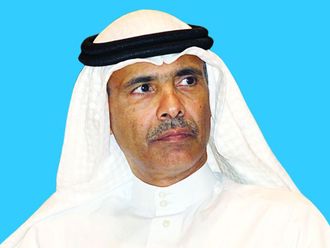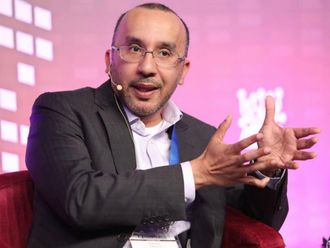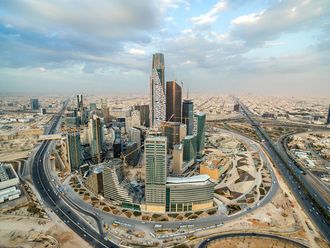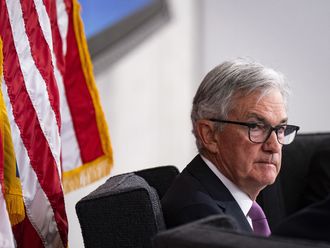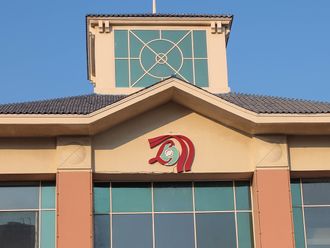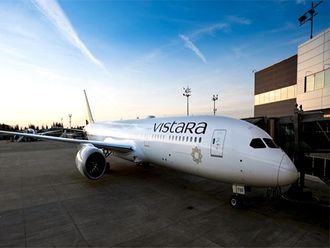Oil producers must have celebrated the New Year in style after a fantastic finish to a year where almost everything was uncertain.
December was characterised with a continuing rally of oil prices which started at the beginning of last week of November.
The price of the Opec basket of crudes started December at $84.13 (Dh308.76) per barrel and rose to $90.73 a barrel, the highest since two years. The average price in Dec-ember was $88.49 compared to $82.83 in November. However, the price for 2010 averaged $77.35 which is much higher than 2009 average of $61.06.
Oil prices have been buoyant for the last few months in spite of the uncertainty about the state of the world economy. The economic recovery however proved to be better than expected and estimates for economic growth continued to improve almost every month.
Even Opec which continued to forecast world economic growth much lower than other forecasters came back in the December oil market to revise the number to 4.3 per cent. Accordingly, oil demand in 2010 is also revised upward to 85.9 million barrels a day (bpd) while it was estimated at a much lower level only few months ago. The International Energy Agency (IEA) however, estimates 2010 world oil demand at 87.4 million bpd and it is hard to reconcile the two estimates and this will also be carried forward to any forecast for 2011.
Recovery
While everybody agrees that economic recovery is taking hold, it is surprising unemployment is still high in many major country in the world. It is the highest in the US at 9.8 per cent. The problems of the European sovereign debts may have eased as the European Union decided on a plan to safeguard the finances of individual countries that may have problems starting from 2013 but this has not eased the stagnation of oil demand in this region.
There was nothing dramatic out of Opec meeting in Quito on December 14 as the organisation decided to keep its official production ceiling of 24.8 million bpd (excluding Iraq) unchanged because "the increase in the annual average oil demand in 2011 is likely to be lower than in 2010". Even economic growth is likely to cool to 3.6 per cent only. Although this is the expectation of most analysts it remains to be seen in the light of rising oil prices which may reflect rising demand that the statistics are not yet aware of.
Of course the cold weather in Europe and the US have supported oil prices in December and even affected a decline in commercial inventories. However, inventories are still higher than the past five year's average which may put a lid on oil prices especially with ample spare production and refining capacity.
The demand for Opec crude oil which is estimated at 28.9 million bpd in 2010 is now forecast to rise to 29.2 million bpd in 2011 and therefore there is hardly any room for officially raising production ceiling by Opec and it has been confirmed by most Opec ministers that there will be no meeting for the Opec conference before its scheduled meeting next June.
But rising prices may undo further the compliance of member countries with their production level which is at not more than 50 per cent now. In Cairo on the fringes of the meeting of the Organisation of Arab Petroleum Exporting Countries (Oapec) differences in the views of some Opec ministers attending the meeting were clear. While Saudi Arabia's Oil Minister Ali Al Naimi said he was still happy with an oil price of $70-$80, others like Libya's Shokri Ganem thought that $100 per barrel oil is a ‘good price'.
But the current price environment has brought revisions by many analysts for the price expectation in 2011. No one has said prices may decline and upward revisions are the norm. Major banks have also revised their forecasts upwards with Goldman Sachs forecasting $100 per barrel for 2011 while ING analysts forecast oil may trade in ‘a new higher price range' between $80 and $100 per barrel. Deutsche Bank raised its average price forecast for this year to $87.50 from a previous forecast of $80 and JP Morgan is even more bullish at $93.
One outlandish view was expressed by Joe Petrowski, CEO of Gulf Oil who said that "The price of a barrel of crude oil could soar to nearly $150 by summer" of 2011. But who knows? He may be right.
The writer is former head of Energy Studies Department in Opec Secretariat in Vienna.


